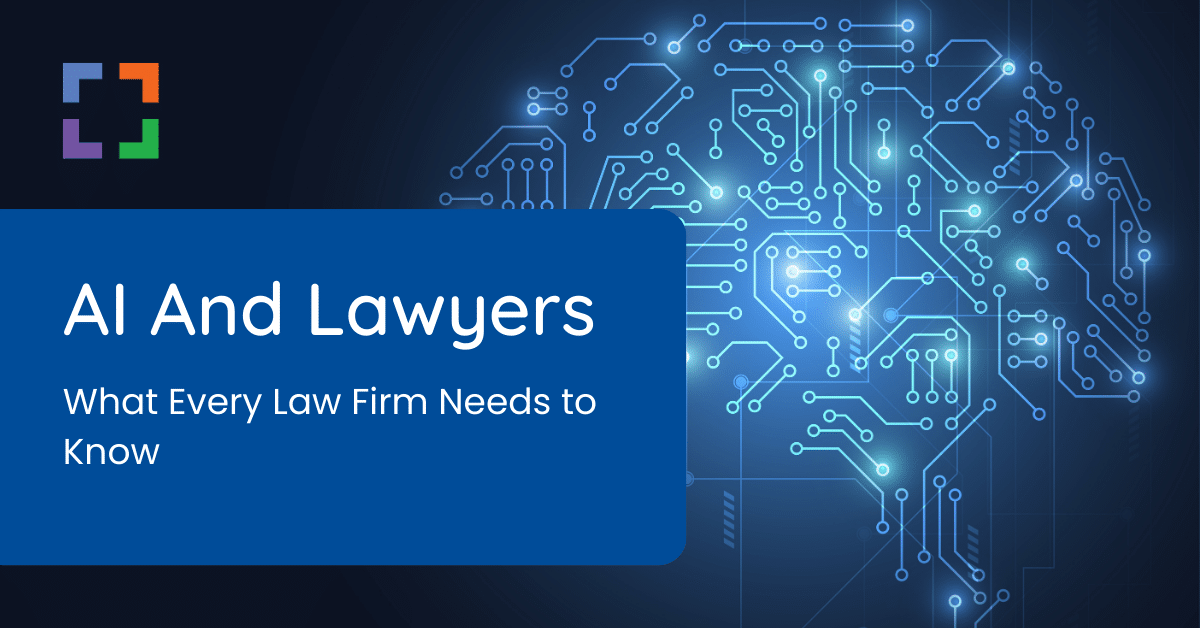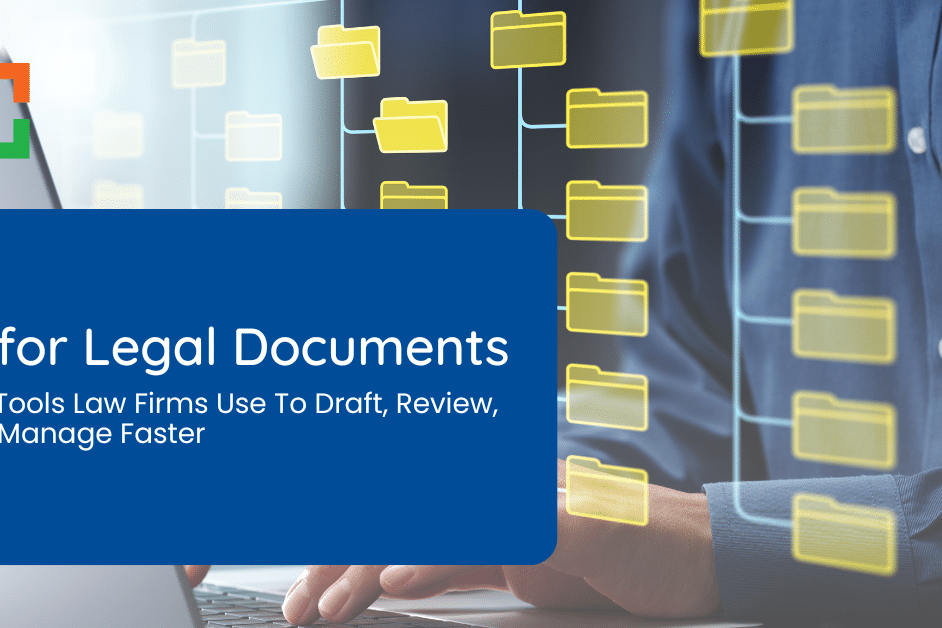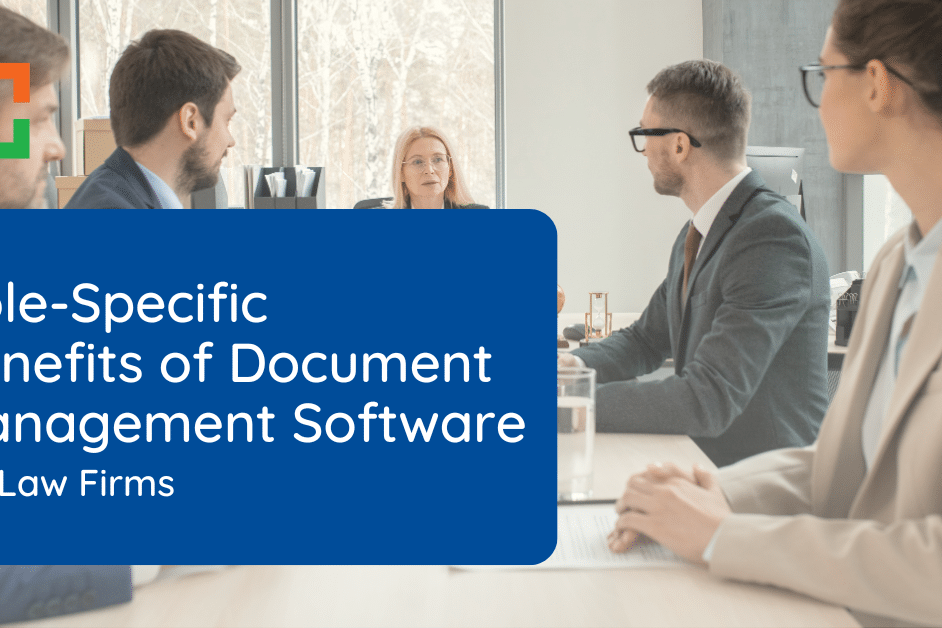What Can Law Firms Trust AI to Do Right Now?
 The rapid advancement of artificial intelligence (AI) is transforming the legal industry, offering tools that enhance efficiency, accuracy, and decision-making.
The rapid advancement of artificial intelligence (AI) is transforming the legal industry, offering tools that enhance efficiency, accuracy, and decision-making.
However, with these developments comes the critical question: What can law firms trust AI to do right now?
By focusing on practical uses, we will outline how AI can be a valuable ally in legal work without compromising the quality or integrity of services.
This article aims to address this by exploring the current, reliable applications of AI that law firms can confidently integrate into their practices.
Current Capabilities of AI in Law Firms
AI technology is already playing a crucial role in various aspects of legal work, enhancing productivity and allowing lawyers to focus on more complex tasks.
Here are some of the most reliable AI capabilities that law firms can leverage today:
Document Review and Analysis
AI-driven tools can significantly expedite the process of document review by automatically identifying relevant information, summarizing content, and flagging inconsistencies or key terms.
These tools are particularly useful in e-discovery and due diligence processes, where large volumes of documents need to be reviewed quickly and accurately.
Legal Research and Case Analysis
AI can assist in legal research by rapidly searching through databases of case law, statutes, and legal literature to identify relevant precedents and information.
Advanced AI algorithms can also help in analyzing case outcomes based on historical data, providing lawyers with valuable insights for case strategy.
Contract Management
AI-powered contract management systems can automate the process of reviewing, drafting, and managing contracts.
These systems can identify clauses that require attention, suggest standard language, and ensure compliance with legal standards. This capability reduces the risk of human error and ensures that contracts are consistent and legally sound.
Document Drafting
AI can generate initial drafts of legal documents, such as contracts, wills, and briefs.
By leveraging pre-built templates and learned patterns from previous documents, AI can create drafts that require minimal editing. This capability allows lawyers to focus on refining content rather than starting from scratch.
Litigation Support
AI is increasingly used to support litigation by organizing and analyzing evidence, preparing discovery requests, and even suggesting lines of questioning based on case data.
This enhances the efficiency of the litigation process and allows lawyers to develop more effective arguments.
Compliance Monitoring
AI tools can help law firms ensure compliance with regulatory requirements by continuously monitoring changes in laws and regulations.
These tools can automatically update relevant documents and alert lawyers to any necessary changes, reducing the risk of non-compliance.
Automation of Routine Tasks
AI can automate many routine administrative tasks, such as scheduling, billing, and time tracking.
This frees up lawyers to focus on more substantive legal work and reduces the time spent on non-billable tasks.
Virtual Assistants
AI-powered chatbots or virtual assistants can handle client inquiries, schedule appointments, and provide basic legal information, improving client service and operational efficiency.
Document Translation
AI can provide real-time translation of legal documents, allowing law firms to serve clients in multiple languages efficiently.
By embracing these AI capabilities, law firms can enhance their efficiency, reduce costs, and improve the quality of their legal services.
However, it’s important to balance these benefits with careful oversight to ensure that AI is used responsibly and effectively.
Bring AI to Your Legal Documents
LexWorkplace Includes:
- Interactive Document Conversations: Engage in a ChatGPT-like dialogue with LexWorkplace AI to discuss document contents and related subjects.
- Contextual Query Suggestions: Receive automatic, context-specific question prompts about any document, helping you delve deeper into its details.
- Seamless Integration and Saving: Click the AI icon to start discussions and easily save conversations as Matter Notes within LexWorkplace.
Related – AI And Lawyers: Delve deeper into the relationship between AI and lawyers – now and in the future.
Trust and Limitations
As AI becomes increasingly integrated into legal practices, it’s crucial for law firms to understand the capabilities of AI and where its limitations lie.
While AI offers numerous advantages, it’s essential to approach its use with a clear understanding of both its potential and its boundaries.
Human Oversight and Verification
AI, while powerful, is not infallible.
The accuracy of AI-generated content, whether in legal research, document review, or contract analysis, depends on the quality of the data it has been trained on and the algorithms it uses.
However, AI lacks the nuanced understanding of law that human lawyers possess. Therefore, human oversight is essential to verify AI outputs.
This ensures that AI-generated documents and analyses are not only accurate but also aligned with legal standards and ethical practices. For instance, AI can flag potential issues in a contract, but a lawyer must review these flags to ensure they are relevant and appropriately addressed.
Ethical Considerations
The ethical implications of using AI in legal practices are significant.
AI systems can inadvertently perpetuate biases present in their training data, leading to skewed results that could affect case outcomes or legal decisions.
Law firms must be vigilant in selecting AI tools that prioritize transparency and fairness. This includes understanding how AI systems make decisions and ensuring that they do not introduce unintended bias or discrimination.
Moreover, firms must maintain client confidentiality, as AI systems often process sensitive information. Ensuring that AI tools comply with privacy laws and regulations is non-negotiable.
Reliability in High-Stakes Situations
While AI can enhance efficiency, there are scenarios where its use may be inappropriate or require heightened scrutiny.
High-stakes legal matters, such as those involving complex litigation or significant financial implications, may demand a level of judgment and critical thinking that AI cannot yet provide.
In these cases, relying solely on AI could lead to oversights or errors that have serious consequences. AI should be viewed as a complement to, rather than a replacement for, human expertise.
It is particularly important to assess the reliability of AI tools in these situations, ensuring that they are used to support, not supplant, the nuanced decision-making required in complex legal work.
Scope of Application
Not all areas of law are equally suited to AI applications.
While AI excels in tasks that involve pattern recognition, data analysis, and repetitive processes, it is less effective in areas that require deep contextual understanding, negotiation, or creativity.
For example, while AI can draft a contract, it may not be able to negotiate its terms or understand the subtleties of a legal argument in the way a human lawyer can. Law firms should carefully consider which aspects of their work can benefit from AI and which require human judgment and expertise.
While AI offers significant benefits to law firms, it is not a panacea.
Successful integration of AI into legal practices requires a balanced approach that leverages AI’s strengths while acknowledging and mitigating its limitations.
This ensures that law firms can enhance their efficiency and effectiveness without compromising the quality and ethical standards of their legal work.
Nothing found.
Related – AI for Legal Documents: Benefits, Use Cases, and AI Tools: Learn how to make the most of AI for your law firm.
AI Tools Law Firms Can Use Right Now
As the legal industry increasingly adopts AI, selecting the right tools becomes crucial for law firms aiming to improve efficiency, accuracy, and client service.
Here’s a look at some AI tools that law firms can integrate into their workflows today.
AI Chat Tools for Law Firms
AI chat tools are becoming increasingly popular in the legal industry, offering powerful capabilities for client interaction, research assistance, and more.
Here are some AI chat tools that law firms can trust to enhance their operations:
ChatGPT by OpenAI
ChatGPT is an AI-powered conversational agent that can assist with legal research, drafting documents, and answering client queries.
Its advanced natural language processing allows it to understand and generate human-like text, making it a versatile tool for various legal tasks.
Microsoft Copilot
Microsoft Copilot integrates AI directly into the Microsoft Office suite, allowing lawyers to automate the creation of legal documents, generate summaries, and interact with AI through natural language commands.
Copilot is especially useful for lawyers who rely heavily on Microsoft products for their work.
Google Gemini
Google Gemini is an AI-powered tool that leverages Google's extensive language models to assist with legal research, drafting, and client communications.
It integrates seamlessly with other Google Workspace tools, providing a familiar environment for legal professionals.
See LexWorkplace AI In Action
AI Tools Meant for Law Firms
This list consists of tools that are either made for law firms or have specific-use cases that law firms can take advantage of.
Legal Research and Analysis Tools
AI-driven legal research platforms, such as Westlaw Edge and LexisNexis, have become helpful tools for many law firms.
These platforms use AI to analyze vast databases of case law, statutes, and legal literature, providing lawyers with relevant results faster and more accurately than traditional methods.
AI in these tools can also highlight key passages, predict case outcomes, and suggest related cases or statutes that might be pertinent to a lawyer’s argument.
- Westlaw Edge: Combines traditional legal research with AI-powered features like predictive analytics and advanced search functions.
- LexisNexis: Uses AI to provide comprehensive legal research, including case analysis and Shepard’s citation service, which ensures that legal precedents are still valid.
Contract Review and Management Systems
AI tools like Kira Systems and Luminance are transforming the way law firms handle contracts. These platforms use machine learning to review and analyze contracts quickly, identifying key clauses, potential risks, and ensuring compliance with legal standards. They significantly reduce the time spent on contract review, allowing lawyers to focus on negotiation and strategic aspects.
- Kira Systems: Known for its ability to accurately identify and extract provisions from contracts, Kira is widely used for due diligence and contract management.
- Luminance: Leverages AI to understand and interpret legal documents, offering insights into contract risks and inconsistencies that might otherwise be overlooked.
Document Automation and Drafting Tools
Document automation tools like ContractExpress and HotDocs enable law firms to create complex legal documents more efficiently. These tools use AI to fill in templates based on pre-set rules, ensuring consistency and accuracy across all documents. Lawyers can customize the documents as needed, but the bulk of the work is done by the AI, saving considerable time.
- Evisort: Evisort uses AI to automate the drafting, reviewing, and management of legal documents. It can automatically extract relevant data, create contracts from templates, and ensure consistency across documents. Evisort’s AI capabilities help reduce manual drafting time and minimize errors.
- Clause: Clause is an AI-powered platform that automates the creation and management of legal contracts. It uses smart clauses and automated workflows to dynamically update contracts based on predefined rules, ensuring that documents remain accurate and up-to-date.
AI-Powered Due Diligence Tools
In the realm of mergers and acquisitions (M&A), due diligence is a critical process that can be greatly enhanced by AI tools like eBrevia and LawGeex. These tools automate the review of large volumes of documents, identifying potential risks and ensuring that no crucial details are overlooked.
LexWorkplace Document AI
Finally, LexWorkplace's Document AI is a cutting-edge integration designed specifically for legal document management.
This AI-powered feature helps law firms manage, organize, and retrieve documents more efficiently.
LexWorkplace’s Document AI can extract key information, assist with e-discovery, and search within documents for research or categorization.
This makes it an invaluable tool for law firms looking to streamline their document management processes. By integrating AI into document management, LexWorkplace ensures that law firms can maintain a high level of organization and efficiency, even as the volume of documents grows.
Take a look at what LexWorkplace's AI functionality looks like below.
Frequently Asked Questions
AI is highly reliable for tasks like legal research, document review, contract analysis, and client interaction through chatbots. Tools such as ChatGPT, Microsoft Copilot, and specialized legal AI platforms offer significant benefits in these areas.
AI is not a replacement for lawyers but a tool that enhances their capabilities. It can handle repetitive tasks, analyze large datasets, and provide research assistance, allowing lawyers to focus on more strategic and complex legal work.
AI tools used in law firms are typically designed with strong security measures to protect client confidentiality. However, it’s essential to choose AI solutions that comply with industry standards and regulations regarding data privacy and security.
Consider your firm’s specific needs, such as document management, legal research, or client communication. Evaluate AI tools based on their features, ease of integration with existing systems, and track record in the legal industry.
While the initial investment in AI tools may or may not be significant, the long-term benefits include increased efficiency, reduced operational costs, and enhanced accuracy in legal work. The return on investment (ROI) is typically seen in the form of time savings and improved client service.
AI can reliably draft a wide range of legal documents, including contracts, wills, briefs, and NDAs. These documents are often generated from templates and refined by AI based on learned patterns from existing documents, requiring minimal human intervention.
AI-powered research tools rapidly analyze legal databases to provide relevant case law, statutes, and legal precedents. These tools save time and increase the accuracy of legal research by quickly identifying pertinent information.
Yes, AI tools like Kira Systems and Evisort can automate the review, analysis, and management of contracts. They identify key clauses, flag potential risks, and ensure that contracts are compliant with legal standards, streamlining the contract lifecycle.
Ethical considerations include ensuring AI does not perpetuate bias, maintaining transparency in AI decision-making, and safeguarding client confidentiality. Law firms must be vigilant in selecting and monitoring AI tools to align with legal ethics and professional standards.
Successful integration involves selecting the right tools, ensuring continuous human oversight, and providing proper training for legal staff. AI should be used to complement, not replace, the expertise of legal professionals, enhancing the quality of legal services.
Looking for Document Management Software?
LexWorkplace:
Modern Document Management for Law Firms
LexWorkplace is document & email management software, born in the cloud and built for law firms. Here’s a quick primer on how it works, or get your free trial to discover LexWorkplace for yourself.
Organize by Client & Matter
Organize documents, email and notes by client or matter. Store and manage all data for a case or project in one place.
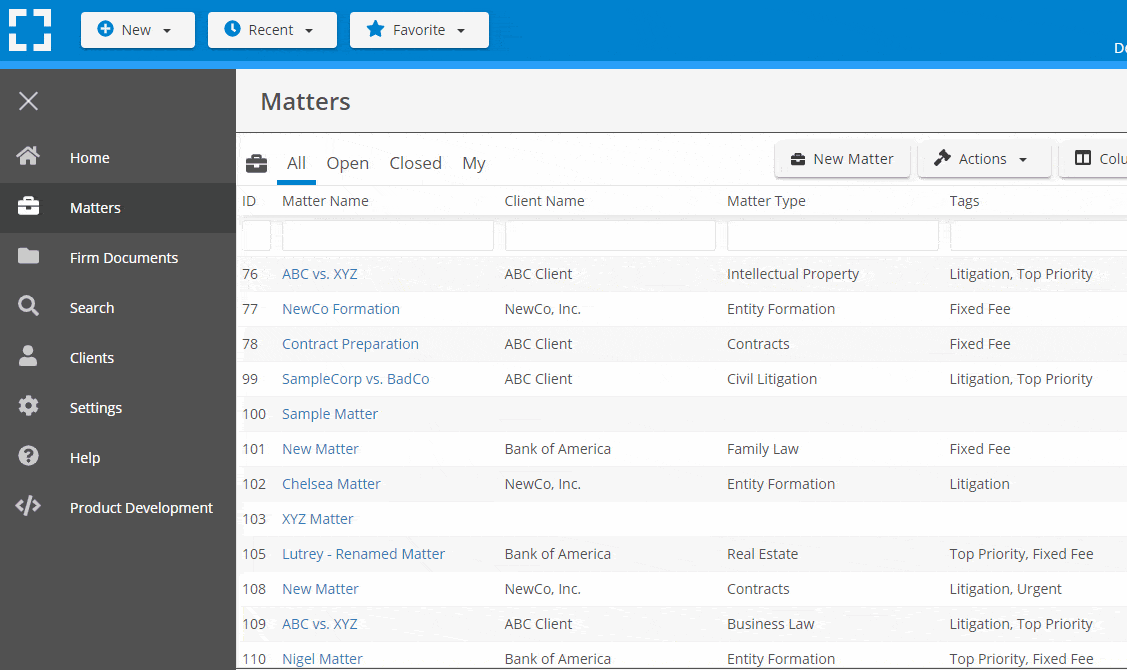
Go Beyond Basic Files & Folders
Supercharge your firm’s productivity with true DMS functions.
- Version Management
- Document Tagging & Profiling
- Document Check-Out / Check-In
- Microsoft Office Integration
- Automatic, Integrated OCR
- Convert Word Docs to PDF
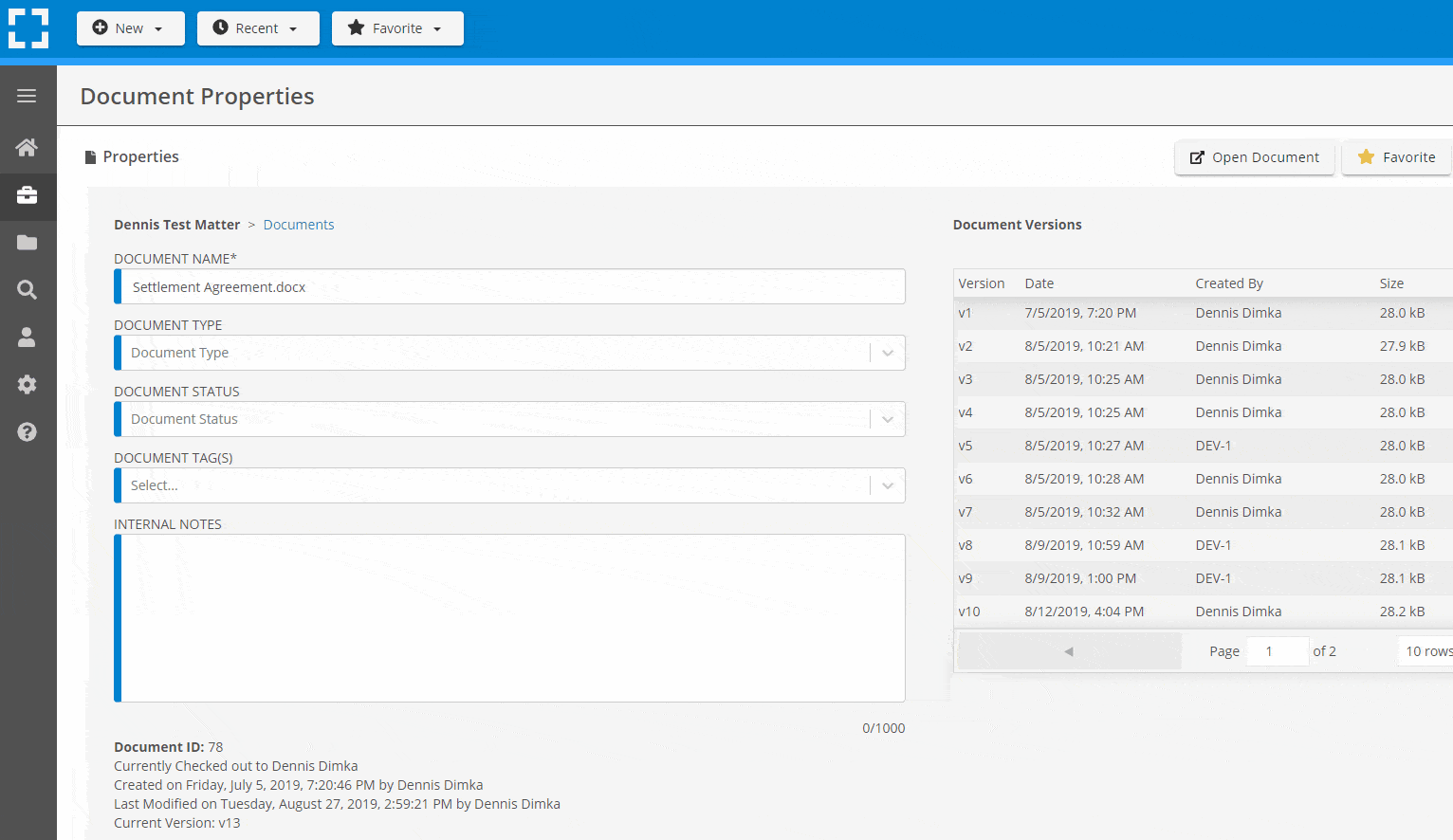
Search Everything
LexWorkplace is like Google for your law firm. Search across millions of pages, documents, folder email and notes in seconds. Refine your search by matter, document type, author and more.
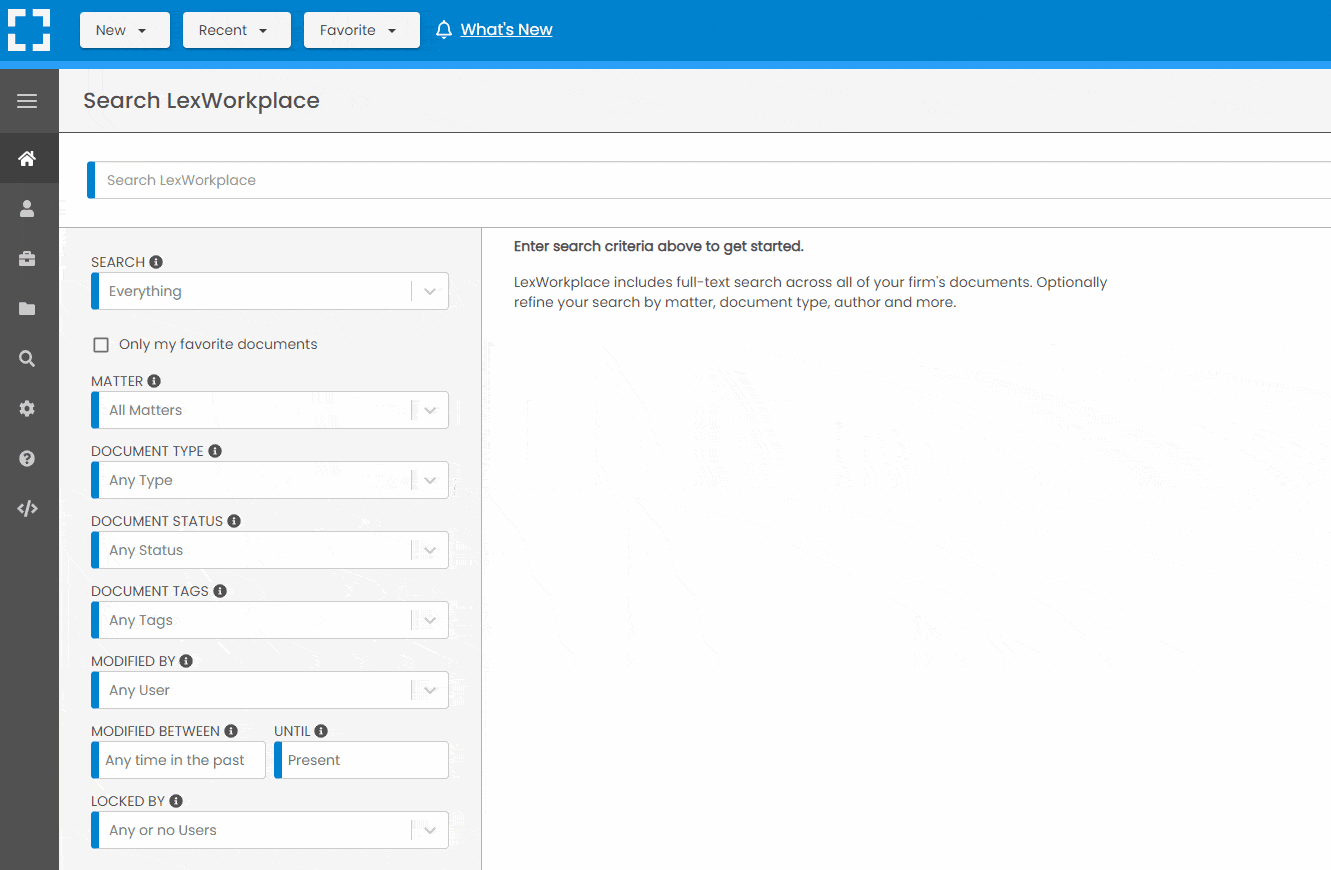
Search by…
- Client or Matter
- Document Type (Contract, Complaint, Order, etc.)
- Document Status (Draft, Final, etc.)
- Document Tags (Filed With Court, Fully Executed, etc.)
Outlook Integration + Comprehensive Email Management
Save emails to a matter without leaving Outlook. Saved emails are accessible to your entire team, organized and searchable.
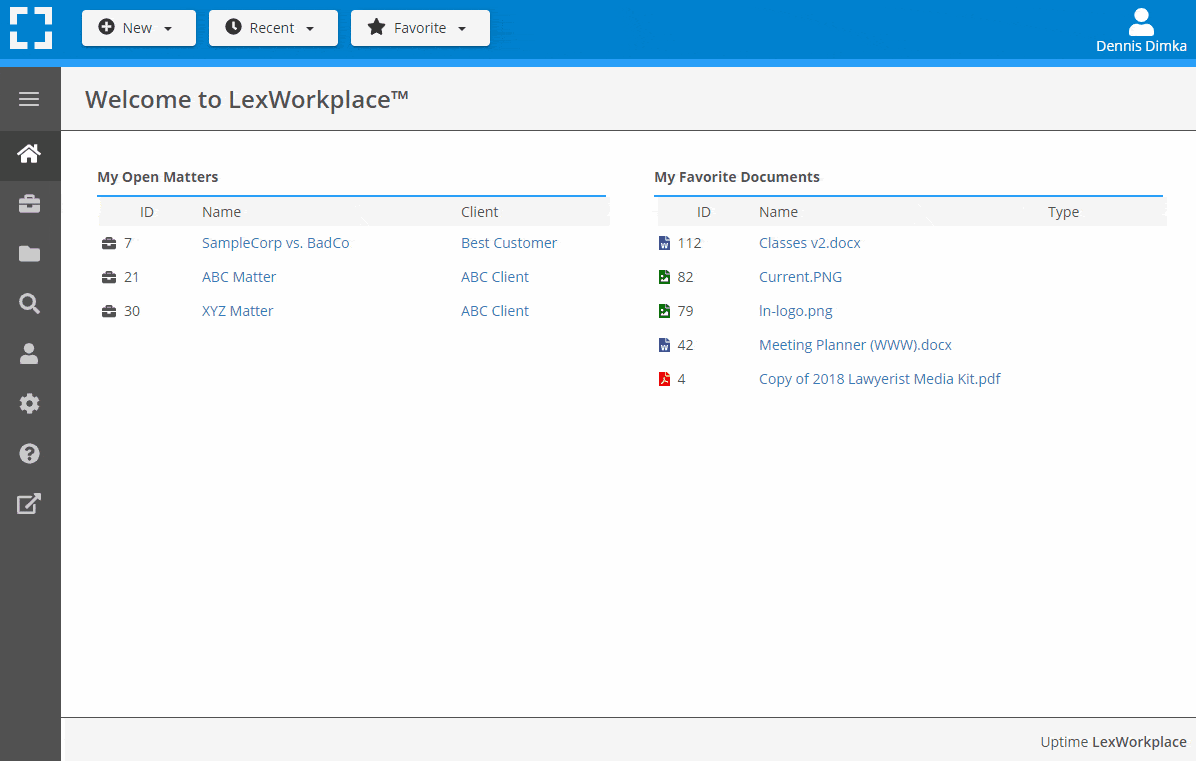
- Outlook Add-In that Works With Windows and Macs
- Save Entire, Original Email to a Matter in a LexWorkplace
- Email De-Duplication
- Organize Emails into Folders, Subfolders
Works with Windows and Macs
All of LexWorkplace is compatible with both Windows and Mac computers.
Next Steps
See What Clients Have to Say
Lawyers love LexWorkplace. See how the system streamlined one lawyer’s practice.
Watch the 5-Minute Demo
See LexWorkplace in action in our quick 5-minute overview and demonstration.
Or, if you want a one-on-one demo, or want to talk about LexWorkplace for your firm, schedule a call or demo below.
You Might Also Like
August 19, 2025
AI for Legal Documents: Top Tools Law Firms Use To Draft, Review, and Manage Faster
Struggling with slow legal document…
August 12, 2025
Why Law Firms Can’t Afford to Delay DMS Migration — And How to Switch Smoothly
Tired of costly, stressful tech…
June 23, 2025
Role-Specific Benefits of Document Management Software for Law Firms
Legal document management software…
Want More Legal Technology Tips?
Subscribe to Uptime Legal to get the latest legal tech tips and trends, delivered to your inbox weekly.
